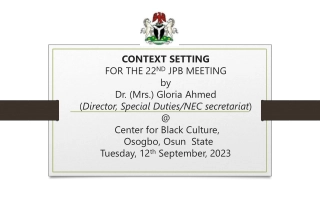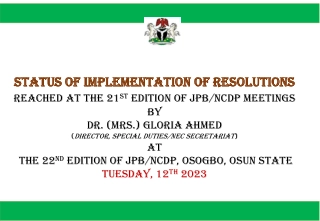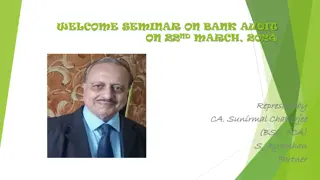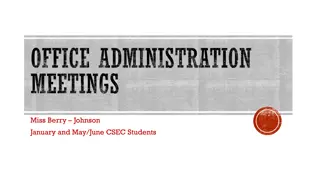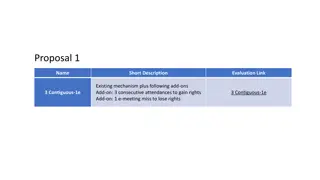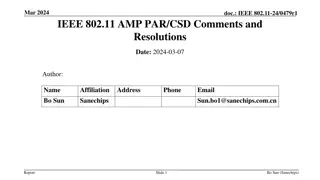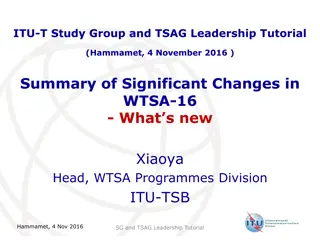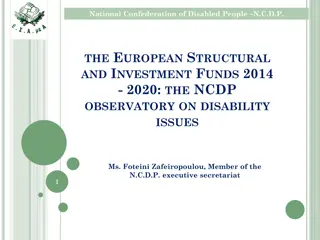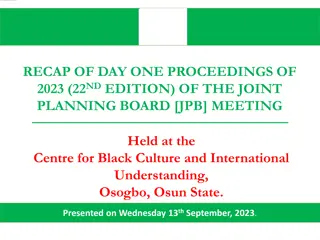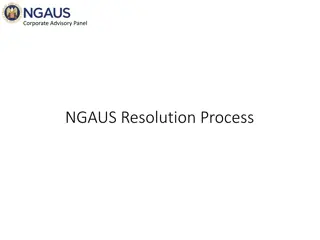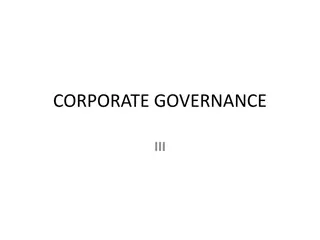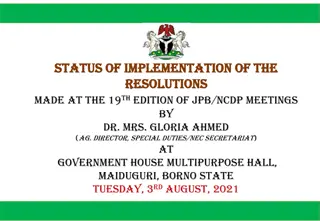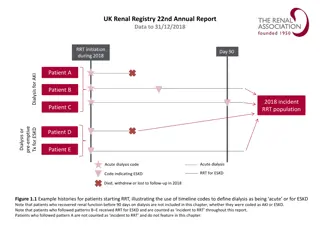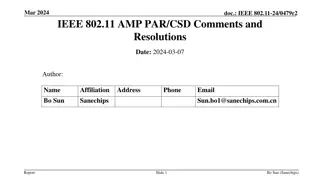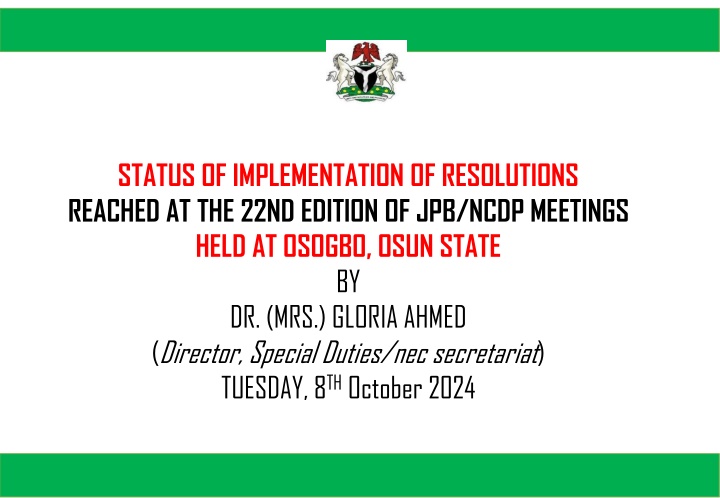
Status of Resolutions Implemented at 22nd JPB/NCDP Meetings in Osogbo
The 22nd JPB/NCDP meetings addressed economic issues for national development, with 617 delegates participating and 8 resolutions agreed upon. Several states reported on implementation of resolutions. For more details, refer to the provided images.
Download Presentation

Please find below an Image/Link to download the presentation.
The content on the website is provided AS IS for your information and personal use only. It may not be sold, licensed, or shared on other websites without obtaining consent from the author. If you encounter any issues during the download, it is possible that the publisher has removed the file from their server.
You are allowed to download the files provided on this website for personal or commercial use, subject to the condition that they are used lawfully. All files are the property of their respective owners.
The content on the website is provided AS IS for your information and personal use only. It may not be sold, licensed, or shared on other websites without obtaining consent from the author.
E N D
Presentation Transcript
STATUS OF IMPLEMENTATION OF RESOLUTIONS REACHED AT THE 22ND EDITION OF JPB/NCDP MEETINGS HELD AT OSOGBO, OSUN STATE BY DR. (MRS.) GLORIA AHMED (Director, Special Duties/necsecretariat) TUESDAY, 8THOctober 2024
Introduction The 22nd edition of the Joint Planning Board (JPB) meeting organized by the Federal Ministry of Budget and Economic Planning (FMBEP) and hosted by the Osun State Government was held from the 12th 13th of September, 2023 at the Centre for Black Culture and International Understanding, behind State Secretariat, Osogbo, Osun State. The theme of the meeting was Imperatives for Restoring Nigeria on the path of Sustainable Economic Growth and Development . The main objective of the meeting of the 22nd edition of the JPB meeting was for critical Stakeholders and delegates to interact on contemporary economic issues for sustainable development, plan and strategize on ways forward in harnessing the country s enormous economic potentials especially in the current challenging period towards restoring Nigeria on the path of prosperity. 2
...introduction The meeting was expected to meet the following deliverables: i. Better informed policies and strategies to address economic issues for visible development at the National and Sub-National levels; ii. Robust peer-review and experience sharing among participants that would guaranty better prospects for all round socio-economic development across the Nation; and iii. Experience sharing by participants which aims to further enrich the knowledge of other stakeholders, as well as, suggest possible options to facilitate sustainable growth and development at all Government levels. 3
...introduction The JPB meeting was conducted using a hybrid format (physical and virtual). 617 delegates (607 physically and 10 virtually) drawn from 34 States of the Federation and the Federal Capital Territory (FCT), namely: Abia, Adamawa, Akwa-Ibom, Anambra, Bauchi, Bayelsa, Benue, Borno, Delta, Ebonyi, Edo, Ekiti, Enugu, Gombe, Imo, Jigawa, Kaduna, Kano, Katsina, Kebbi, Kogi, Kwara, Lagos, Niger, Ogun, Ondo, Osun, Oyo, Plateau, Rivers, Sokoto, Taraba, Yobe, Zamfara States and the FCT participated. The attendance included 27 State Hon. Commissioners, 67 State Permanent Secretaries, 55 representatives from Federal Ministries, Departments and Agencies (MDAs), 41 delegates from State MDAs, Directors-General and Directors of Planning, Research & Statistics from both the Federal and State MDAs, 16 Security Agencies, as well as, Representatives of Non-Governmental Organizations, Academia, Civil Society Organizations and the Media. Arising from the presentations, exhaustive discussions and deliberations, delegates unanimously agreed on 8 Resolutions which were monitored across 30 out of the 36 States and FCT. The following States reported their levels of implementation of the resolutions through filling and submission of the monitoring template: Abia, Adamawa, Enugu, Kaduna, Ogun, Taraba, Yobe, Sokoto, Kano, Gombe, Kebbi, Kwara, Ekiti, Zamfara, Bauchi, Anambra, Katsina, Niger, Kogi, Ondo, Bayelsa, Cross River, Ebonyi, Akwa Ibom, Rivers, Edo, Oyo, Plateau, Delta, Osun, Borno, Benue, Imo, Jigawa and Nasarawa 4
Status of Implementation Across the States . S/ N AREA OF FOCUS AREA OF FOCUS STATUS OF IMPLEENTATION The 36 States and FCT are encouraged to individually examine its own local peculiarities and fashion out its own sustainable development pathways through effective policies directed at the major drivers of economic development; R1 Imperatives for Restoring Nigeria on the Path of Sustainable Economic Growth and Development This is ongoing across Most states. Development plans spanning over 5 years have been developed by most States. All the States have imitated projects and programmes to boost human capital of their people. Educational Infrastructure and WASSCE fees payment are some of such initiatives Modalities for diversification of the economy was reported across the States. Some , in partnership Both National and Sub-National Governments must invest heavily in Human Capital Development to create highly skilled manpower needed for rapid economic growth and development Over-reliance on Oil & Gas as major sources of revenue should be de-emphasized and attention focused on diversification of the economy. In this regard, the Federal and State Governments must begin to develop other sectors such as Agriculture, 5
status of implementation across the States RESOLUTION AREA OF FOCUS STATUS OF IMPLEMENTATION R2 Status Report on the Implementation of Key Resolutions of the 21st Edition of the JPB/NCDP Meetings The FMBEP should collaborate with the States in the process of designing the template for harvesting the status of implementation of the JPB/NCDP resolutions, factoring the peculiarities of each State. No feedback on this. However, plans are ongoing to convene regional workshops for State officials of the Ministry of Budget and Economic Planning and the FMBEP to jointly design resolution-tracking templates and build capacity on strategies for collating requisite data based on the agreed resolutions and reporting same promptly. 6
status of implementation across the States RESOLUTION AREA OF FOCUS STATUS OF IMPLEMENTATION Ongoing nationwide Government at all levels should promote the migration of Heavy-Duty Industries/Trans port system from fossil fuel to Gas Infrastructure; Government at all levels should promote the migration of Heavy-Duty Industries/Transport system from fossil fuel to Gas Infrastructure; Given the new Electricity Act that empowers States and individuals to participate in all components of the energy sector, State Governments should carry-out energy audit to determine Energy needs and explore areas for collaboration with the private sector based on their comparative advantage; States should develop small hydro power plants, on or off-grid, and solar, for communities and MSMEs; The three tiers of Government should institute initiatives for promotion of attitudinal change regarding energy use, wastages and theft Government should promote Research & Development, Local Content, New Energy (Hydrogen, Biofuels) Prototype Investments for energy sufficiency R3 PPP arrangement for power generation has been implemented in some States. Ongoing in most States Campaign ongoing in most States No feedback on this 7
status of implementation across the States RESOLUTION AREA OF FOCUS STATUS OF IMPLEMENTATION R4 Ongoing nationwide in collaboration with the national government and PPP Energy Revolution for Industrializatio n and Economic Prosperity Government should promote the establishment of Community foundations as a vehicle for investments in micro power grid projects and other infrastructure No feedback on this Tertiary Institutions should pioneer micro renewable energy projects to cater for the Institution, and nearby Communities. 8
status of implementation across the States RESOLUTION AREA OF FOCUS STATUS OF IMPLEMENTATION R5 No feedback on this Challenges of Climate Change and Insecurity in Agricultural Productivity States should encourage Agricultural Insurance cover for farmers to protect them and their products from financial losses caused by various risks and uncertainties associated with farming Ongoing nationwide, especially in those States traversed by Rivers Niger and Benue Government at both the Federal and State levels should invest in national drainage architecture to harness water released from different sources e.g Water from Lagdo dam for irrigation farming and construct Hydro Power Dams for energy generation Ongoing nationwide, especially States in the Northern Geopolitical Zones Despite the awareness and the provision of framework for sustainable land management in most Government policies to address the challenges of Climate Changes in the country, both the National & Sub-National Governments should increase investment in afforestation, climate change adaptation and mitigation strategies, restoration of peace and security in affected regions 9
status of implementation across the States RESOLUTIO N AREA OF FOCUS STATUS OF IMPLEMENTATION R6 Enhancing Food Systems for Improved Food Security and Job Creation States should engage and provide youths with opportunities through skills development, vocational education, incubation and digital agriculture in order to assist them to access agripreneurship opportunities and acquire jobs in agribusiness, off-farm and rural labour markets Ongoing across the States The Federal and State Governments should collaborate with the Private Sector, Businesses and Development Partners to increase investment in agriculture and food security in order to curtail the prevalence of post-harvest losses across the country Ongoing nationwide Both Federal and State Governments should develop pre- retirement training programmes for retiring Civil Servants who may want to venture into Agriculture systems Ongoing nationwide Government at all levels should provide the enabling environment and make provision for farming equipment and tools that could be utilized by rural farmers to improve food production, all year-round farming and also attract more citizens into agriculture. Several schemes have been put in place across the States and the Federal to that effect 10
status of implementation across the States RESOLUTIO N AREA OF FOCUS STATUS OF IMPLEMENTATION R7 Addressing Unemploym ent through Skills Acquisition and Entrepreneu rship National and Sub-National Governments should invest in skills acquisition programmes to address the unemployment level in the country Ongoing across the States with several schemes implemented Government at both Federal and State levels should strengthen the transition from training to work through the provision of Starter packs to skilled unemployed Nigerians to avoid relapse Ongoing nationwide with varying degree of successes 11
status of implementation across the States RESOLUTION AREA OF FOCUS STATUS OF IMPLEMENTATION R8 No feedback on this Human Capital Development and Japa Syndrome: Challenges and Opportunities The Federal Government to collaborate with other countries on labour migration to enable both parties harness its gain Ongoing nationwide. Tax incentives have been rolled out by the Federal government. Some States are doing same and expediting land acquisition processes for ease of doing business Both Federal and State Governments should create an enabling environment for Nigerians, and provide incentives to participate in National Development programmes such as Land, Infrastructure, Tax reliefs, etc No feedback on this. National and Sub-National Governments to encourage Nigerian citizens to invest their resources, talents, skills and global expertise into the Nigerian economy 12
It is pertinent to note that the above status of implementation were based on submissions of thirty States, with the exception of Adamawa, Bayelsa, Borno, Cross River, Katsina, and Yobe. Percentage compliance was 81%. 13
Conclusion Report received from the 30 States, have shown high level of compliance with implementation of the 2023 JPB/NCDP resolutions. It was observed that the States have initiated projects, programmes and formulated policies that would address issues with the State of the Nigeria Economy. However, not much was done to take advantage of opportunities therein. Late submission and improper filling of the template by some States was an issue. It is worthy of note that some States sent in their report on the eve of this event. I want to specially commend States that submitted their duly completed templates promptly as it is hoped that 100% compliance would be achieved subsequently. 14
THANK YOU 15

